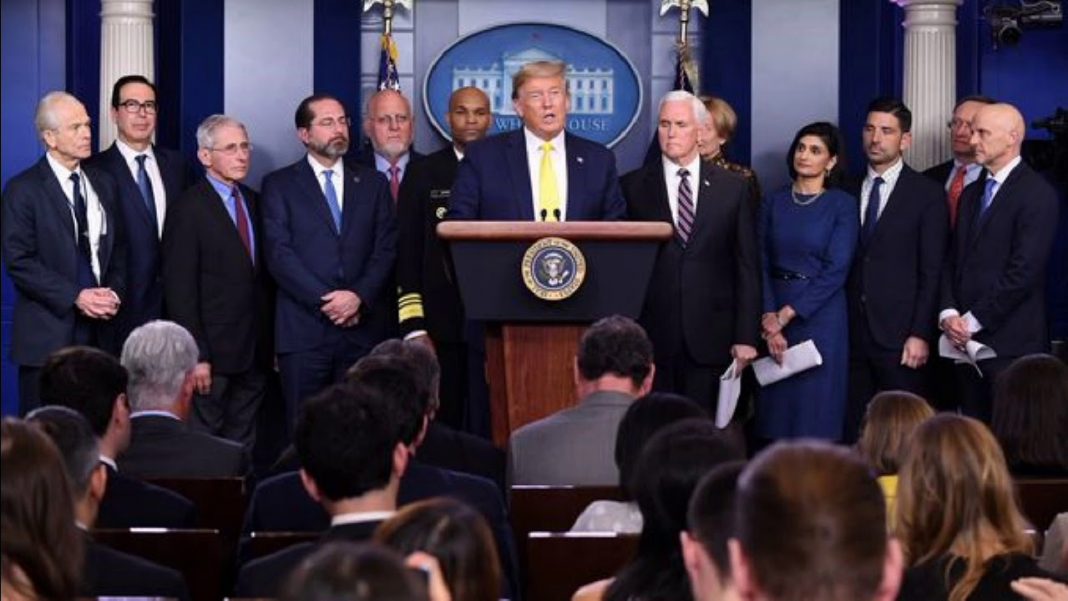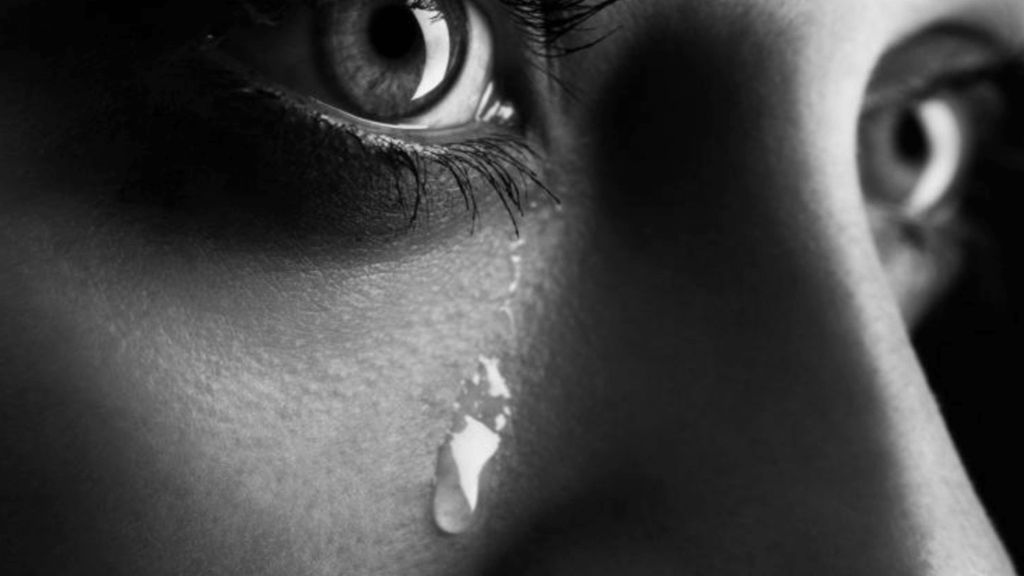Dinesh D’Souza explains democratic vs. authoritarian socialism on Louder With Crowder
Transcript
Steven Crowder: Just to prove it a token, a token minority, I believe, we have as a guest on right now. His new book is, I want to make sure they get this right. Well, you know what, he can tell us about his new book. It is The United States of Socialism. Mr D’Souza, how are you Sir?
Dinesh D’Souza: Hey, it’s good to beon the show, it’s been awhile.
Steven Crowder: Thank you very much. I want to be clear since you have more melanin in your skin, do you believe anything I just said regarding nationalism in this pandemic was racial supremacy?
Dinesh D’Souza: No, not at all. Yeah, I think its interesting how there’s been an effort to spin to spin this in racial terms and I think that it actually reflects this, this kind of new socialism we could call it, at what I mean by that, is simply that socialism traditionally was all about class, the rich and the poor, the workers, the capitalists and what I mean by that is socialism is now married to the politics of race and gender and sexual orientation and immigration and so, so she wasn’t today’s I would have been unrecognizable to Marx.
Steven Crowder: Right.
Dinesh D’Souza: Because it’s socialism married to this new identity politics.
Steven Crowder: Yeah and that must be frustrating for you a Mr. D’Souza, because one thing, we hear about the white, black thing a whole lot in the United States, and a, I don’t think I’m letting the cat out of the bag when I say you said you were you were originally from India, of your family, your lineage, and I met some Indians that are far darker than black people. They don’t seem to be included in that mix. Is that general south Indians?
Generally, but not the entirely. The um, India runs the whole spectrum. If you look at the Indian Bollywood actresses, they look basicly white.
Steven Crowder: Right.
Dinesh D’Souza: But on the other hand you’ve got Indians who are completely dark. Now I think here it’s important to make a distinction between race and skin color, because
Steven Crowder: Right.
Dinesh D’Souza: The Indians can be dark skinned without being negroid in a racial sense.
Steven Crowder: Right, but racist would treat them the same way is what I’m saying. If everyone in this country was a racists they would look, if you compare Drake, for example, to, there was a guy, Firkosh, who was a server at my favorite local eatery, he’s very very dark. Wait, your’re, wait, someone call Ice T. If there’s a real racists he would treat him just as poorly. But we don’t hear the same, it doesn’t seem like Indian Americans have the same kind of political clout and voice, and that seems important, especially when we’re talking about identity politics with socialism right now.
Dinesh D’Souza: Well, the other thing is, if you go to India, India has now become, I would say, one of the most pro-american countries in the world.
Steven Crowder: I now.
Dinesh D’Souza: So that is very wide pro-western and pro American sentiment. Even the old nonsense that I used to hear when I’m growing up, you know, the anti-British, colonialism is horrible, India would have been a fabulously rich country were not for colonialism. All of this kind bloviation has subsided. You have a small block of socialist we still say this kind of stuff, but by and large they’re, they’re ridiculed by the rest of India.
Steven Crowder: Can I ask you, Dinesh? By the way Audio Wave there just loves democrats, I do know know why we can’t shoot straight. But, why is it that, I’ve noticed this with other countries having been raised in Canada. There was a huge rash of anti-Americanism in Canada. And that’s pretty obvious, because they’re jealous. This is the land of really cool stuff, Canada’s silly. And then I’ve notice the two groups of people who are most pro-american, this is anecdotal, you would probably have the data on it, have been Indians and, for some reason, Australians, a lot of the time. Why do you think that is with Indians? Why are they so pro-american, western civilization because it seems like a lot, if you look at the yogi culture here, the vegan ultra left culture. their often espousing what they view as, as Indian sort of Values.
Dinesh D’Souza: Right, the Leftist in America who’s pursuing India and things India cool because, you know, Hari Krishna, and because of all the stuff, they’re chasing in India that the Indians are not running away from.
Steven Crowder: Right.
Dinesh D’Souza: They’re pursuing an Indian dream that Indians don’t have any more. Indians buying large want the American dream. Now, when I was growing up, I grew up under socialism. It wasn’t totalitarianism socialism, it was Democratic socialism.
Steven Crowder: Right.
Dinesh D’Souza: And the three things I remember the most about it are number one, first of all we had a seven-year wait to get phone. We never had a phone
Steven Crowder: Wow, the Obama lady would have been pist. She would have been pist. Hey, what do you think about India. India sucks!!! Obama got me a phone. I don’t know, Dinesh nothing.
Dinesh D’Souza: And then number two, the ration card. You see now when we go into the grocery store and they tell you you canonly buy, you know, buy one roll of toilet paper, that’s a little temporary whiff of what it was like growing up in a socialist country,
Steven Crowder: That’s a real whiff.
Dinesh D’Souza: They’ll tell you you know you can only buy so much cooking oil, you can only buy so much rice and the third is just corruption at every level of government, I mean, you have to pay people under the table all the time . There’s corruption here but not in the same way. So I think Indians who, a whole generation of Indians of my my age. fled India. My brother went to sea, other people went to Dubai, a third group of people went to Canada and Australia, a forth group came to the United States.
Steven Crowder: Did you say that your brother went to sea like he like he . . .
Dinesh D’Souza: Yeah my brother, my brother went as a cadet on a Merchant Marine ship, and he basically started out of Singapore and he made it life, he became a captain.
Steven Crowder: He he a Scientologist now? No. Okay, he’s not a Scientologist though, right . . . I do want to say because we don’t have a lot of time and I appreciate you making the time, Dinesh, but its very important and you do a very good job at this, delineating between totalitarian socialism and what they call or brand of democratic socialism because it still is socialism, and I’ve experienced this in Quebec obviously, I assume to a lesser degree than India, but it still has a 52% income tax rate. You still are talking about a socialized healthcare system where, yeah listen, now they’ve opened up to privatization 2005, but when my mom need an MRI and a had fewer MRI machines in the whole country than they had in the whole state of Vermont back then, once you pay a few hundred dollars under the table, you can get an MRI with a couple months as opposed to 14. So um, I think it’s important to be able to experience that to be out there speaking to to their experiences.
Dinesh D’Souza: Yeah, I mean in some ways at the level of pure principal, Democratic socialism differs from totalitarianism socialism kind of like gang rape differs from individual rape. I mean, look at this way, look at this way. I’ll explain that
Steven Crowder: . . . continue with your rape analogy, Mr. D’Souza. All right go ahead, go ahead.
Dinesh D’Souza: In both case, in both cases the corrosion, whether the corrosion comes from one guy or from a majority. Imagine you have a group of people they all in one marble and one guy has ten marbles. So authoritarian socialism means that one guy gets to grab the guy who had 10 marbles and take his marbles. Here’s democratic socialism, a majority of the people with one marble all decide to use the same level of force, but use the fact that a majority of them have decided to confiscate the other guys property.
Steven Crowder: Right.
Steven Crowder: In both cases the other guys deprived of his property. In one case is done by one guy, in the other cases done by force, by a group, blaming the legitimacy of the majority. And that’s my point. It is a sense that from the point of view of principal, there’s no fundamental difference. There’s a confiscation in both cases, there’s force employed in both cases, an injustice has done in both cases,
Steven Crowder: Exactly, and that’s why it’s very important to understand the idea of private property and constitutional rights. Like you said, I think it’s a brilliant analogy. In one case somebody takes the marble in the other case the nine marbles take the remaining marble and if Joe Biden was at the helm, he’ just lose them . . . the book I believe it is available for pre-order June 2, 2020. It could be out on June 2nd, The United States of Socialism, correct?
Dinesh D’Souza: Yes, you can pre-order it now but it won’t out in stores until later so I am just thinking through, what’s strange about it now is it to me when you go into stores and they’re empty, my wife is from Venezuela, so she’s been telling me about the empty stores in a in Venezuela now for years . . . but I never knew what that felt like, but now a little bit, with this strange virus situation, we’re getting a preview of what normal life is like in socialist countries.
Steven Crowder: Yes, that being said in your private life take advantage in this pandemic because if she’s from Venezuela that’s one less hungry mouth to feed. Dinesh D’Souza we must go. The book is The United States of Socialism available for pre-order June 2, 2020.






